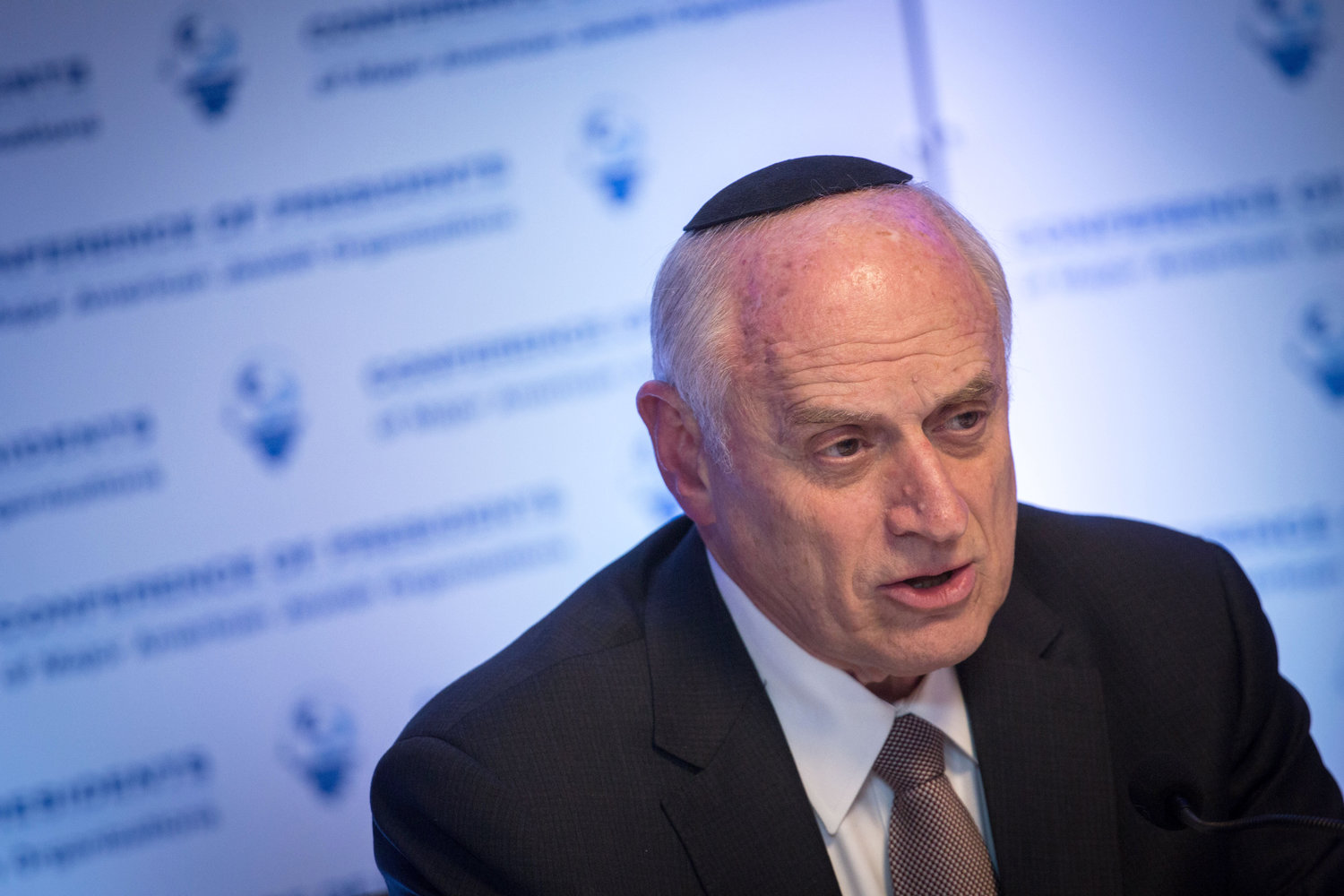30 U.S. Jews at summit in Saudi Arabia
A delegation of 30 Jewish American leaders was hosted by senior government officials in Riyadh, Saudi Arabia, last week for a four-day summit organized by the Conference of Presidents of Major American Jewish Organizations.
The mission to Saudi Arabia took place amid reports that efforts are underway to organize a breakthrough public summit between Israel’s prime minister and Persian Gulf leaders in the coming months. The mission, the first such specifically Jewish delegation to the Sunni Muslim kingdom in nearly three decades, also follows the rollout of President Donald Trump’s “Peace to Prosperity” vision for peace between the Israelis and Palestinians — a plan that is believed to be supported by several Gulf States.
“We had an open dialogue. We met with high level officials and raised our concerns,” said Conference Chairman Arthur Stark. “They raised their concerns, and we hope and believe that this is a step in a long and productive relationship, that mirrors other visits that we’ve had to Gulf States where the embrace of Israel is clearly already there.”
The Saudi Kingdom provided security for the delegation. Members of the delegation ate strictly kosher food throughout the visit and participated in daily Jewish prayers.
While specific contents of conversations remain off-the-record, the mission reflects warming relations between Saudi Arabia and the State of Israel, as well as the Trump administration as it tries to reboot negotiations in an attempt to solve the longstanding conflict between Israelis and Palestinians, and address the threat from Iran.
“You’ve been reading the tea leaves this week,” Stark told JNS during a press conference in Jerusalem. “[U.S.] Secretary [of State Mike] Pompeo will be in Saudi Arabia. You can read the public statements of Saudi officials regarding the peace plan and other public statements they’ve made. So we’re hopeful that things will continue to change in a direction that we will be pleased with.”
While no Saudi officials were present at the peace proposal’s White House rollout, the press conference was attended by the ambassadors from Bahrain, Oman and the United Arab Emirates.
“It sends a signal that the general Arab world is tired of the Palestinians refusing to move forward,” newly appointed Conference CEO William Daroff told JNS.
“It was very moving — the fact that they were there,” Stark added of the Gulf diplomats. “And as many of them have stated, they would like to see this to be a start of a negotiated deal.”
In addition to the peace plan, other topics likely raised in the discussions include regional security, and Iran’s pursuit of nuclear weapons and regional hegemony.
Said Stark: “There’s a commonality of concerns and commonality of interests for Israel and for these Arab countries. Everybody’s very concerned about Iran.”
In addition to diplomacy and security, Gulf States are beginning to turn towards Israel as an economic model for prosperity in the Middle East.
“I think gradually you see signs of embracing, of innovation, signs of embracing modernity and so forth,” said Stark. “That’s part of what is starting to be heard within the leadership, and they look towards America, they look towards Israel as shining examples of what can be.”
While most of the Saudi leaders present preferred not to be identified in the press and meetings were held off the record, one took place with Mohammed al-Issa, the secretary-general of the Muslim World League and an ally of Crown Prince Mohammed bin Salman. Al-Issa recently led a delegation to Auschwitz to commemorate the 75th anniversary of the liberation of the Nazi extermination camp.
According to Conference executive vice chairman Malcolm Hoenlein, delegations to the Muslim world are “a long-term investment on the part of the conference.”
“This is more than a two-decades’-long effort,” he told JNS. “Now, there are reasons why there is this change in the climate, perhaps contributing to accelerating this relationship. But it’s very sensitive.”
Hoenlein noted that members of the Conference of Presidents previously visited Qatar.
Much of the diplomacy takes place over time and under the radar “by building meaningful relationships across the board,” he noted. Responding to why specific details of the summit remain off-the-record, Hoenlein added that “loose lips sink ships. We want to be responsible and constructive players.”
“We have had success,” he added. “We do not always advertise it, we don’t make the pronouncements that some others do. We look for the long-term results, and we get it.”

 51.0°,
Overcast
51.0°,
Overcast 




